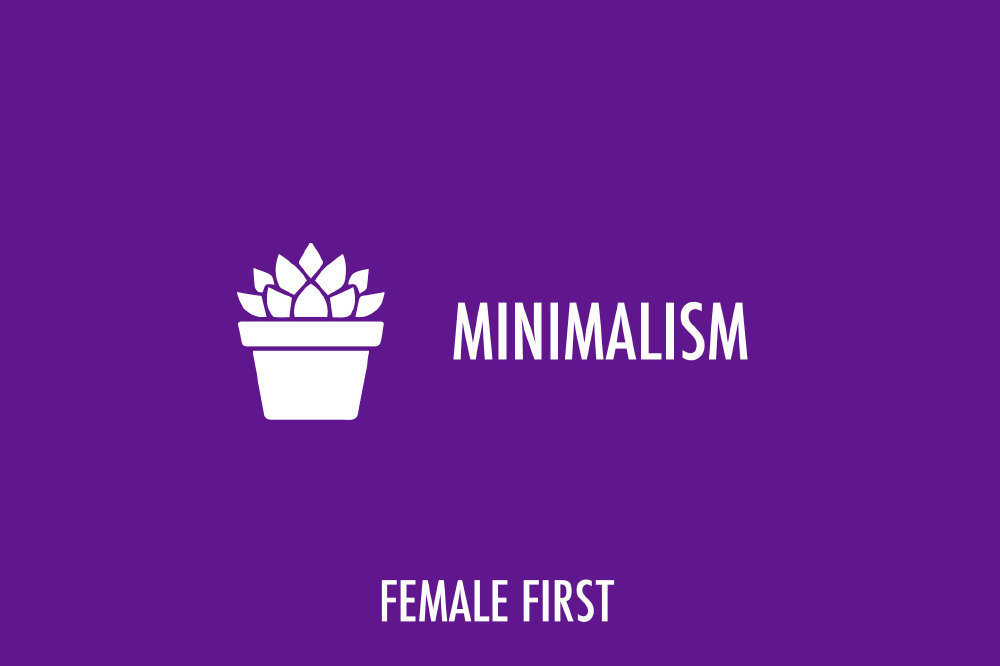As more and more people start to declutter and minimise to fill in their time during lockdown, here are some things you won’t miss once you reach the end of the process…

Minimalism on Female First
Endless amounts of cleaning: It’s inevitable, the more stuff you own the more cleaning you have to do. The less you have in your space, the easier it is to flick a duster around your uncluttered surfaces and do a quick hoover of empty floors to restore your home back to normal. Minimalists have very little cleaning to do.
The yearly purge: At least once a year, usually in Spring, you probably feel compelled to sort out your home and get rid of anything that no longer works, you don’t use or that is past its best. Once you declutter, you no longer have to do this. A little and often approach to things coming in and out of the home means you no longer have to dedicate a weekend or longer to clearing out your space every year. Minimalists don’t have to consider ‘the purge’.
Getting sucked into impulse buys: Once you have dedicated precious time to ridding your home of things, the last thing you want to do is fill it up again and repeat the process several months down the line. Decluttering- on the whole, makes you more careful and methodical about your purchases. Minimalists steer clear of impulse purchases.
Constantly thinking about things: Once you reach a point where you have minimised as much as you can, you are preoccupied less with stuff. You care less about your wish lists, what you want for your next birthday and even stop worrying about what to buy others. You turn your attention to other things, like the people in your life and the experiences that accompany them.
Your lack of funds due to stuff: One thing is for sure, when you buy more things, you have less money and little to show for it. So when you decide to remove anything from your home that no longer serves you in favour of only things that do, you will probably spend less than you earn. Many minimalists are debt free, have savings, money for experiences and disposable income.
Tidying: As with cleaning, the less you have to make a mess with, the easier it is to put things away if they get a little out of hand. A few minutes a day should do it to reset your space rather than huge chunks of time devoted to make it look reasonable. Minimalists don’t have to do a lot of tidying.
Shopping: If you didn’t like shopping before, you really won’t like shopping once you set out on your minimalist path. However, if you were once a fan of browsing the stores, they suddenly hold less appeal. Shopping, simply put- is bringing something into your home that you have to take care of and then eventually discard. Minimalists save themselves the effort and don’t buy the thing in the first place.
Happy decluttering!
MORE: Coronavirus: How the pandemic is causing us to live a more minimalist lifestyle
Tagged in Minimalism Minimalist

